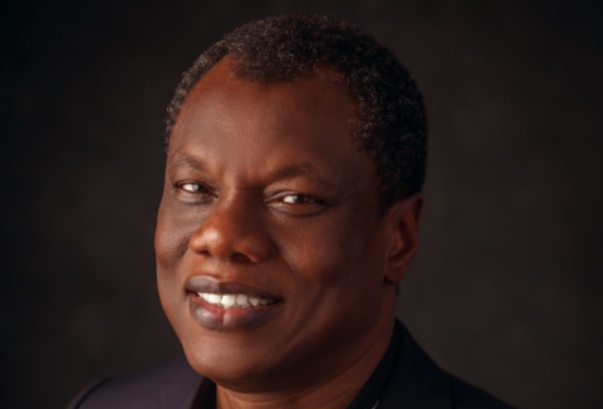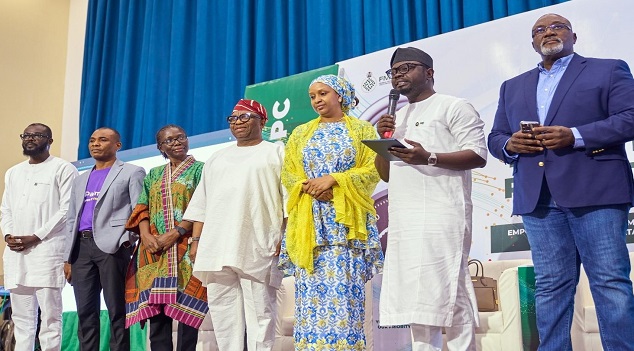News
Lessons From the U.K. Brexit Election

By Austin Okere
The U.K. has announced the result of the “Brexit Election”, and Boris Johnson’s Conservative Party won a landslide victory, mostly at the expense of Jeremy Corbyn’s opposition Labour Party.

Austin Okere
Listen to their statements after the results; “I will work night and day to repay voters’ trust” … Boris Johnson. “I will not lead the party in any future general election campaign” … Jeremy Corbyn.
Despite the very high stakes in this election, there was no acrimonious stirring of tribal sentiments, nor calls on supporters to protest or reject the results. Rather, leaders on all sides called on their supporters to accept the line in the sand and move forward together. The central message of the winner was – let the healing begin.
Here are the key facts:
- The decision to go for elections in the U.K. was taken in late Oct 2019, but officially kicked off on Nov 06th
- Voting started at 7am on Dec 12th, and stopped by 10pm the same day
- The polls all come in by 8am next day, Dec 13th, except for St. Ives, an island caught in a storm
- The fastest returning record was 45 mins after voting closed
- There was 67% voters’ attendance
- There were no incidents of ballot snatching, violence or deaths as a result of the election
They did not have four years to plan; in fact, they barely had two months, and they had to deal with the exigencies of the attendant “holiday mindset” of the Christmas season; and yet there was no thought of postponement.
What can we learn from the UK elections? Can we replicate this in Nigeria? What do we need to do to make this happen?
I asked these questions on my social media handles and got a myriad of responses ranging from genuine self-introspection to excuses, and even outright justification of the status quo.
It is an unfair comparison of apples and oranges. Comparing a country created in 1536 with a country that was colonised and whose independence was given in 1960 is not a fair comparison; Nigeria needs time! One of them declared. Some others postulated that until we pass into law the electoral reform bill, there will not be elections in 2023.
I don’t think the comparison is unfair; technology evens things out. We have to start aspiring towards superior systems instead of wallowing in our status quo, another countered.
If the U.K. is too far from Nigeria in development for a fair comparison, then maybe we should measure our electoral process against our neighbours here in Ghana and assess how we stack up. It cannot be gainsaid that the deliberate policy of free quality education in Ghana is at the root of sustained electoral maturity. The elections are more about developmental manifestos of the candidates than about parochial tribal and religious sentiments.
Even if we compare “apples with apples” with respect to the period since independence, how do you explain that countries like Botswana (1966), Mauritius (1968) and Singapore (1965) who were also colonized and gained independence after Nigeria are doing much better in their political process.
Perhaps the most telling comment was that elections in the U.K. are not do-or-die affairs because there’s a limit to what a party can spend, coupled with the fact that the rewards and perks of political office are not way out of proportion to other careers.
Nigeria’s political process seems to be riddled with rigging, violence and deaths. We seem to take one step forward in electoral reforms, followed by two giant leaps backwards. Success at organising elections will certainly boost our standing among nations, and indeed our self-esteem as a people.
While it is pertinent to do an introspection about how we got here, it is more important to focus on how to dig ourselves out of this predicament and our respective parts in the plan; what I call healing “the man in the mirror” to heal society. Credible elections will instill good governance, assure shared prosperity and stem the massive brain drain plaguing our nation. This is certainly not rocket science, or is it?
It will be interesting to hear your views.
Austin Okere is the Founder of CWG Plc, the largest ICT Company on the Nigerian Stock Exchange & Entrepreneur in Residence at CBS, New York. Austin also serves on the Advisory Board of the Global Business School Network, and on the World Economic Forum Global Agenda Council on Innovation and Intrapreneurship. Austin now runs the Ausso Leadership Academy focused on Business and Entrepreneurial Mentorship
News
‘Fraudsters Have Cloned my Voice’- Akume

George Akume, secretary to the Government of the Federation, has raised alarm over the activities of a criminal syndicate allegedly cloning his voice and using it to defraud unsuspecting Nigerians with promises of Federal Government appointments.

George Akume, SGF
In a statement issued by Yomi Odunuga, his special adviser on Media and Publicity, on Thursday, Akume said the fraudsters have impersonated him in audio calls and text messages, targeting high-profile individuals and soliciting payments ranging from ₦5 million to ₦15 million in exchange for phantom political positions.
“From information available to the office, the fraudsters cloned the voice of the SGF, using it to solicit money in return for federal appointments,” the statement read.
The SGF further revealed that the scammers not only cloned his voice but also spoofed the phone numbers of other high-profile individuals to give credibility to their fraudulent scheme.
“These scammers attach bank account details to messages sent to victims and request them to send their CVs to cloned emails,” Odunuga added.
The statement noted that the fraudsters have been operating through both traditional bank accounts and fintech mobile wallets, complicating efforts to trace the financial trails.
Distancing himself from the illicit scheme, Akume stressed that appointments to Federal Government boards and parastatals are transparent and not for sale under any guise.
The statement noted, “Senator Akume emphasized that the appointment processes for Nigerians into boards and parastatals are transparent and verifiable, urging individuals not to pay any money in expectation of securing a position.”
The Office of the SGF confirmed that it has notified relevant security agencies, urging members of the public to report suspicious calls or messages to law enforcement.
“The Office of the SGF strongly advises Nigerians to report the activities of these fraudulent people to the authorities while taking all precautionary steps necessary to avoid being victims of th
News
Olukoyede, EFCC Chair Denies Forcing Ojulari to Resign as NNPC Boss

Ola Olukoyede, executive chairman, Economic and Financial Crimes Commission (EFCC), has denied claims that he compelled Bayo Ojulari, group chief executive officer, Nigerian National Petroleum Company Limited (NNPCL), to step down from his role.

Bayo Ojulari,
The allegations stemmed from an August 2, 2025, online publication which alleged that Olukoyede and Adeola Ajayi, director general, Department of State Services (DSS), pressured Ojulari into signing a resignation letter during a closed-door meeting in Abuja.
The report also suggested that Ojulari was interrogated over his purported links to Olatimbo Ayinde, British-Nigerian oil mogul, who is reportedly close to key figures in the present administration.
In a follow-up story, the news outlet further claimed Ojulari was later invited to the Presidential Villa, where First Lady Senator Remi Tinubu reportedly opposed his resignation.
Responding to the allegations, Dele Oyewale, spokesman, EFCC< issued a statement on Wednesday on behalf of the Commission, noting that Olukoyede, through his legal counsel Adeyinka Olumide-Fusika (SAN), described the publications as defamatory and injurious to his integrity.
“The publications and the imputations conveyed by them are so damning and cannot be ignored or treated with levity,” the statement quoted.
Olukoyede denied any suggestion that he was acting at the behest of Ayinde or that his actions were influenced by external political figures.
A letter addressed to the editor of the publication, signed by Olumide-Fusika, reiterated the gravity of the claims and insisted on corrective measures.
“He, therefore, demanded that the medium acknowledge your wrongdoing, expressly admit that what you published and imputed against my client are false, apologise for it unreservedly and retract and pull down the stories from your newspaper website and social media handles,” the statement added.
Olukoyede said the story portrayed him as “someone that has betrayed and subverted public trust by submitting the authority of his public office and trust as Chairman of the EFCC to the dictates and directives of one Olatimbo Ayinde.”
Labelling the report as entirely fabricated, Olukoyede demanded an official apology and complete removal of the story from the outlet’s digital platforms within 48 hours.
News
PalmPay Partners FG to Drive Data Protection Awareness

PalmPay reinforced its commitment to data protection and youth empowerment with a ground-breaking partnership with the Federal Ministry of Youth Development to launch the Youth Data Protection Awareness and Training (YDPAT) Program, which is targeted at equipping over 1,000,000 Nigerian youths digitally over 3 years.

The training program, commissioned last week at the Shehu Musa Yar’ Adua Centre in Abuja, will focus on providing youths with the right knowledge and skills required to navigate the digital landscape safely. With over 70% of the Nigerian population consisting of youths, this is an important move to foster trust, security and youth-focused innovation.
Speaking at the launch, the Honourable Minister of Youth Development, Comrade Ayodele Olawande, commended PalmPay’s partnership in the actualisation of the program and described YDPAT as a bold step toward building a digitally literate and security-conscious generation.
In his words, “This is about building a privacy-first generation, one that is inclusive, future-facing, and globally competitive.” He also emphasised the low awareness of the Nigerian Data Protection Act (NDPA), 2023 and the critical shortage of certified Data Protection Officers (DPOs), despite over 500,000 data controllers operating in the country.
This position was equally supported by PalmPay’s Managing Director, Mr Chika Nwosu, who stated how data protection is as important as innovation in tech. He noted that PalmPay integrates privacy into every stage of its product development, ensuring that user information is safe.
Beyond ensuring data protection, PalmPay is committed to empowering young Nigerians with real opportunities for growth, with mentorship and internship placements for top-performing participants. It has led several youth-oriented initiatives, including the Purple Woman campaign, and Passing the Baton CSR for thousands of youths and women in urban and rural communities.
With a drive to achieve nationwide digital literacy, PalmPay is championing campaigns in Northern Nigeria, with more activations planned across various states.

 E-Financial1 day ago
E-Financial1 day agoZenith Bank Slammed with ₦85m Fine for Freezing Account on Invalid Court Order

 Telecom2 days ago
Telecom2 days agoAirtel Nigeria CEO Identifies Data Boom, Nationwide Connectivity as Crucial Innovation Areas

 Telecom2 days ago
Telecom2 days agoNCC Tightens Rules of Corporate Governance for Telcos

 Broadcasting2 days ago
Broadcasting2 days agoMastercard Highlights Africa’s $16.5Bn AI Potential and Path to Digital Empowerment

 Telecom1 day ago
Telecom1 day agoTelcos Say Mobile, Internet Services in Nigeria may Collapse

 E-Business1 day ago
E-Business1 day agoHow to Avoid NIN Portal Lockout under New Restrictions — NIMC

 E-Financial2 days ago
E-Financial2 days agoZenith Bank rolls out drums for D’Tigress, rewards team with N200m

 News2 days ago
News2 days agoOlukoyede, EFCC Chair Denies Forcing Ojulari to Resign as NNPC Boss



























